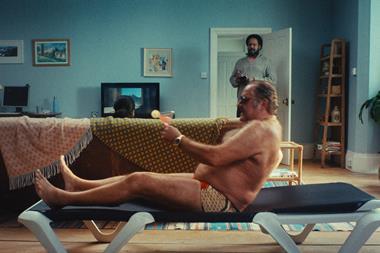
Dr Paul Marsden is a chartered psychologist at Brand Genetics and UAL, specialising in consumer behaviour. Each month, he’ll be tackling a new phenomenon impacting the psyche of the nation’s shoppers and explaining the psychology behind their activities, habits and quirks.
How are you feeling today? If you’re like many others, then your mood may have been dented by living through what increasingly feels like a perma-pandemic. As we wait for brighter days, better testing, more therapeutics and a vaccine, here’s something that can help. More shopping.
Indeed, there’s an emerging body of scientific research that shows that shopping can be a surprisingly effective way to feel better. Of course, many of us already know this and studies show that about 60% of us recently shopped not just for stuff, but also for happiness. Retail therapy works. For example, in one recent case-controlled test, participants were first made to feel sad, and then half were invited to go shopping. Those that could go shopping felt 20% better than the control group.
Beyond experimental evidence, there’s also some interesting research emerging on the long-term therapeutic benefits of shopping. A study in Asia has found that frequent shopping is linked to long life: seniors are 27% less likely to die if they shop frequently.
But what’s really interesting for retailers and shoppers about the therapeutic benefits of shopping is not that retail therapy works. It’s when and how it works.
The psychology of retail therapy
Actress Bo Derek famously quipped “whoever said that money can’t buy happiness, simply didn’t know where to go shopping”. But research shows that that effective retail therapy is less to do with where we shop and more to do with how we shop.
The basic psychology of retail therapy is simple. The evidence indicates that retail therapy works because it helps us take back control of a world that seems out of control. When we are shopping, we are momentarily back in control: we get to browse, we get to choose, we get to buy. And it is this self-affirming feeling of being back in control that seems to boost our mood and sense of wellbeing.
In other words, retail therapy works by supporting and satisfying our basic psychological need for autonomy and self-determination.
This psychological insight that retail therapy works by promoting a sense of autonomy is of practical use for both shoppers and retailers. For example, if you are a shopper and looking to indulge in a little retail therapy to boost your mood, then try and be more deliberate and mindful in the choices you make. Don’t just opt for the first product you see, but take your time to browse through your options, and make more conscious choices. This kind of shopping may cost you a little more in time, but it’ll cost less in money than a psychologist.
And if you are a retailer, then look for ways to empower your shoppers so they feel more in control. This may be as simple as ensuring that there are at least two options available to choose between for every purchase. By promoting a sense of shopper control, you will be contributing to the psychological wellbeing of shoppers. And as we learn to deal with living under the shadow of a Covid cloud, that’s a good thing.
Dr Paul Marsden, the Shopper Shrink
Chartered psychologist at Brand Genetics and UAL, specialising in consumer behaviour
References
Atalay, A. S., & Meloy, M. G. (2011). Retail therapy: A strategic effort to improve mood. Psychology & Marketing, 28(6), 638-659.
Chang, Y. H., Chen, R. C. Y., Wahlqvist, M. L., & Lee, M. S. (2012). Frequent shopping by men and women increases survival in the older Taiwanese population. J Epidemiol Community Health, 66(7), e20.
Dunn, E. W., & Weidman, A. C. (2015). Building a science of spending: Lessons from the past and directions for the future. Journal of Consumer Psychology, 25(1), 172-178.
Lee, L. (2013) The emotional shopper: Assessing the effectiveness of retail therapy. Foundations and Trends in Marketing, Vol. 8, No. 2, 69–145.
Rick, S. I., Pereira, B., & Burson, K. A. (2014). The benefits of retail therapy: Making purchase decisions reduces residual sadness. Journal of Consumer Psychology, 24(3), 373-380.




















No comments yet